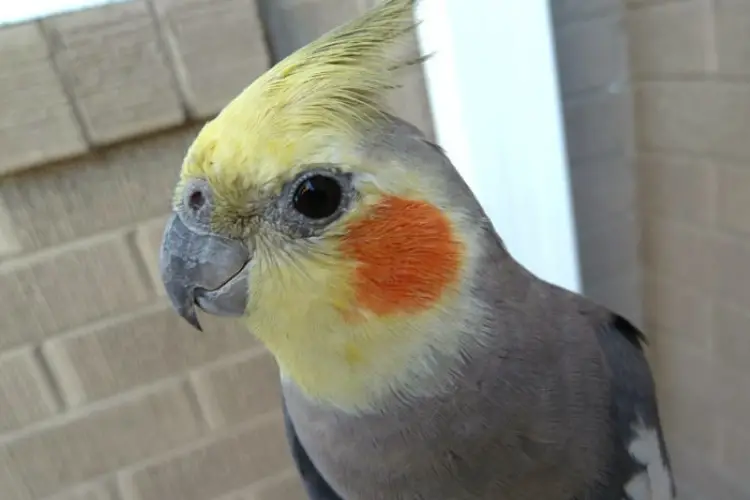There are myths about birds that if you touch a chick, the mother bird will reject it, or birds cannot smell anything. However, none of them is entirely accurate. Birds can smell but to some extent. So what about cockatiels?
So, do cockatiels have a good sense of smell? No, cockatiels do not have a strong sense of smell. When foraging or looking for mates, they can smell only whiffs of aromas. When flying, air rushes through the cockatiel’s nostrils, making it difficult for them to use their sense of smell. To survive in the world, they rely on their vision.
Keep reading to find out in detail whether cockatiels have a good sense of smell and if they are sensitive to smells.
Do Cockatiels Have a Good Sense of Smell?
Cockatiels do not have an excellent sense of smell. Their nose’s olfactory receptors are underdeveloped. Cockatiels, therefore, do not rely on their sense of smell for anything. Instead, they have excellent vision, which aids them in foraging. Cockatiels can even tell the difference between fresh and rotten food by sight.
The evolutionary journey of a cockatiel has left no room for developing a good sense of smell. This is because cockatiels usually fly when looking for food or watching for prey. It is difficult to smell anything when flying, so it would be useless even if the cockatiels had a good sense of smell.
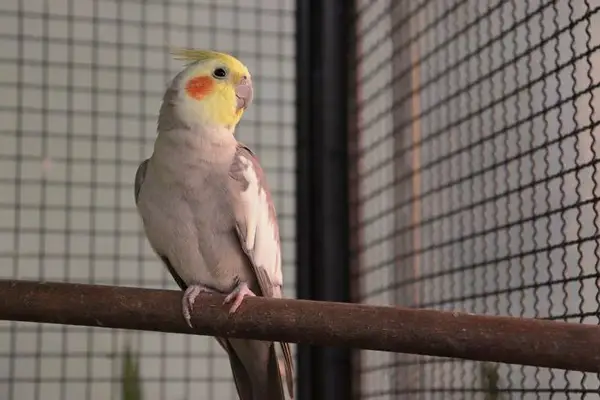
Cockatiels forage using their vision and hearing. Cockatiels, like all birds, can see all colors, including ultraviolet light, which helps to compensate for their poor sense of smell and taste.
Do Cockatiels Smell Food?
Cockatiels can detect food. Their smell may be poor, but they can see various aromas. This raises the question of whether cockatiels have a nose. They do, indeed. They lack a physical nose like humans, instead having openings on the sides of their faces. These openings are referred to as nares.
Because of their aerodynamic properties, nares are ideal for cockatiels. Cockatiels do not breathe through their mouths; instead, they use their nares. The cockatiel will rarely use them to smell scents in most cases.
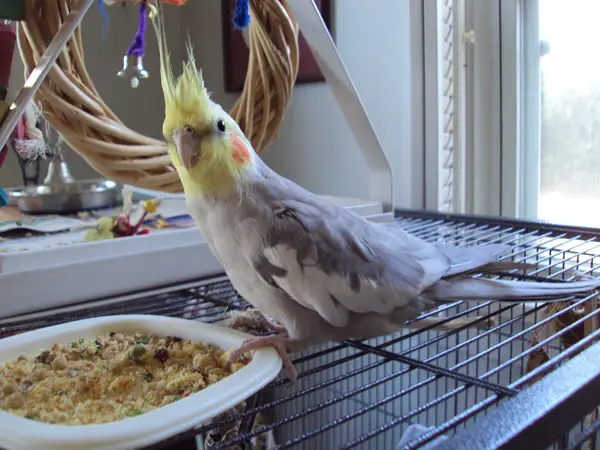
Owners of cockatiels claim that their birds will not eat stale food. This means the cockatiel can detect some of the food. A blind cockatiel will also reject spoiled food. Although there has been little research into whether cockatiels can smell food, they inevitably can.
Can Cockatiels Smell Their Owners?
It is unknown whether cockatiels can detect their owners’ scents. According to research, they recognize their owners through sight and when the owners touch them. A cockatiel’s vision allows it to determine your mood. Cockatiels cannot identify you based on your scent. Cockatiels do not rely on their sense of smell, so their lack of it is not a disadvantage.
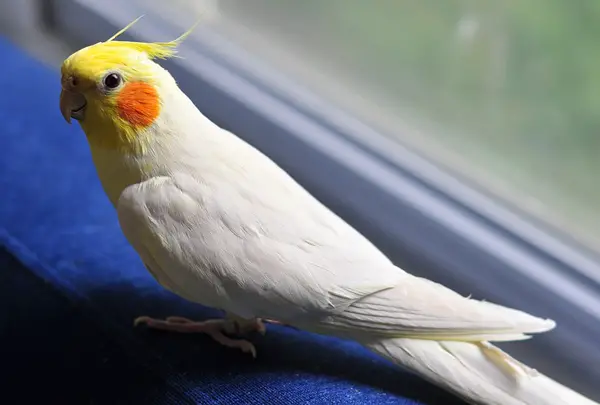
Also read: Cockatiel Bite
Are Cockatiels Sensitive To Smells?
Cockatiels are sensitive to strong odors such as detergent, ammonia, and bleach. As a result, when cleaning their cages, use warm water and soap. Garlic has a chemical called allicin, which is highly irritating to birds.
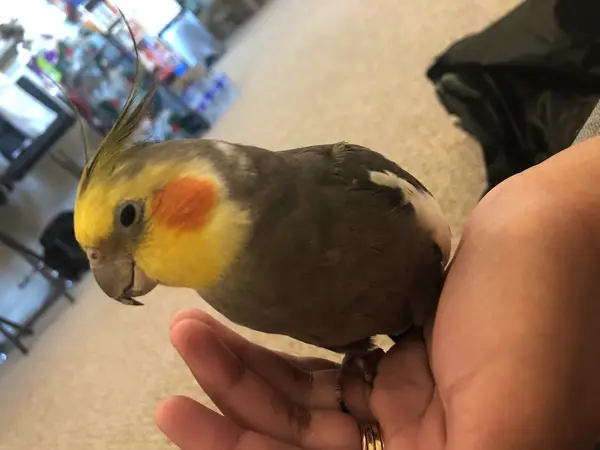
Most farmers do not want birds to eat their grain, so they spray garlic around their properties. Lemon, cayenne pepper, vinegar, and peppermint are some other irritants.
How Does A Cockatiel’s Sense of Smell Affect Its Taste?
So, now that we know cockatiels have a poor sense of smell what about their taste? Cockatiels do not have the same sense of taste as humans. Cockatiels have about 100 taste buds, whereas humans have up to 9000.
When you consider the cockatiel’s few taste buds and poor sense of smell, it’s easy to conclude that its taste is subpar.
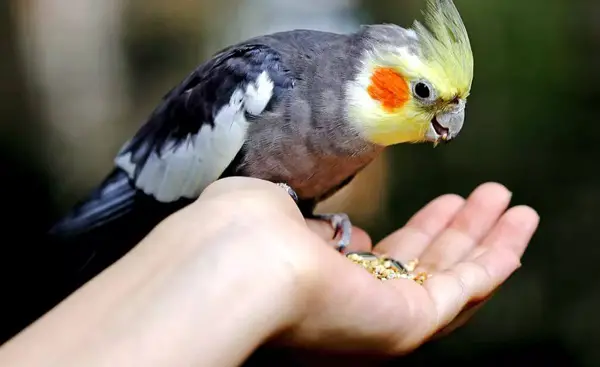
If you’ve ever tried covering your nose while eating, you’ll notice that your sense of taste disappears. It’s the same as having a lousy sense of smell. Many people are skeptical that the cockatiel’s smell influences its taste mostly because cockatiels prefer certain foods over others.
Cockatiels, on the other hand, rely on the texture of their food rather than its flavor. Cockatiels, for example, enjoy eating hot peppers and do not seem to mind the taste.
FAQs
Here are other questions cockatiel owners like to know about cockatiel’s sense of smell.
Cockatiels do have olfactory receptors, but they are underdeveloped. Their noses are primarily used for breathing, not for detecting odors.
Cockatiels do not have a favorite odor. Even when it comes to food, cockatiels rely on texture rather than taste or smell. On the other hand, Cockatiels can use their sense of smell to determine whether or not the food is safe to eat.
Related: Female Cockatiel Making Weird Noises?
Conclusion
Cockatiels can smell, but their smell receptors are not fully developed. Cockatiels have noses called nares, which they use to breathe. Cockatiels cannot recognize their owners because their sense of smell is insufficient. Furthermore, their taste is influenced by their poor sense of smell, making it difficult for the cockatiel to choose food based on flavor.
